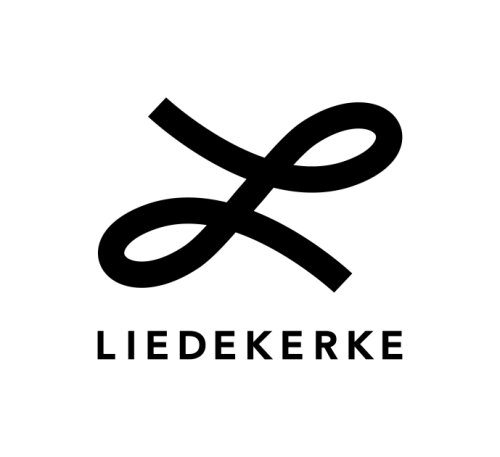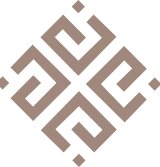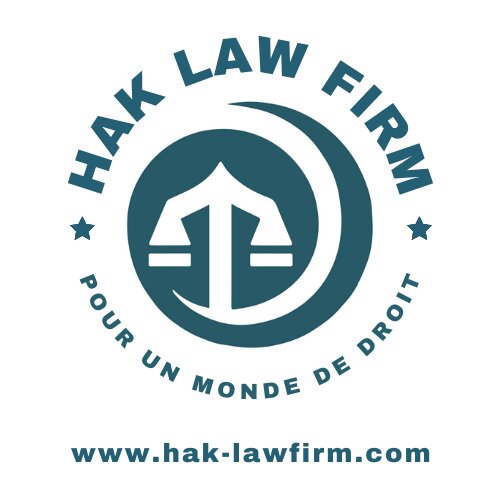Best Hiring & Firing Lawyers in DR Congo
Share your needs with us, get contacted by law firms.
Free. Takes 2 min.
Or refine your search by selecting a city:
List of the best lawyers in DR Congo
About Hiring & Firing Law in DR Congo
In the Democratic Republic of the Congo (DR Congo), hiring and firing practices are governed by the country's labor laws, which aim to regulate employer-employee relationships and ensure fair treatment. Employment laws are shaped by a combination of statutes, regulations, and collective bargaining agreements. These laws provide guidelines on hiring practices, employment contracts, conditions of work, terminations, and disputes. Understanding these regulations is crucial for both employers and employees to ensure compliance and protect their rights.
Why You May Need a Lawyer
Legal advice can be essential in navigating the complexities of hiring and firing in DR Congo. Common situations where an individual or business may require legal assistance include:
- Drafting or reviewing employment contracts to ensure legality and fairness.
- Understanding the implications of different types of employment, such as fixed-term versus indefinite contracts.
- Handling disputes related to unfair dismissal, discrimination, or harassment.
- Navigating the procedures for legally terminating an employee, including notice periods and severance pay.
- Interpreting and applying collective bargaining agreements specific to certain industries.
Legal counsel can provide valuable insights into these situations, ensuring that employers and employees comply with local laws and protect their rights.
Local Laws Overview
The legal framework surrounding hiring and firing in DR Congo is primarily governed by the Labor Code, which outlines the rights and obligations of both employers and employees. Key aspects include:
- Employment Contracts: Employment contracts must be in writing; they can be fixed-term or indefinite, with specific provisions outlined in the Labor Code.
- Employee Rights: Employees are entitled to fair wages, reasonable working hours, paid leave, and a safe working environment.
- Termination of Employment: Employers must provide valid reasons for terminating an employee and adhere to notice periods and severance obligations stipulated by law.
- Dispute Resolution: The Labor Inspectorate and labor courts are established avenues for resolving employment disputes.
- Collective Bargaining: Unions play a significant role in negotiating terms and conditions of employment, which can affect hiring and firing practices.
These laws are designed to maintain a balance between protecting employee rights and allowing for business flexibility.
Frequently Asked Questions
1. What is the legal minimum notice period for termination?
The minimum notice period for termination depends on the employee's length of service and the terms of the employment contract. Typically, it ranges from one month to three months.
2. Are fixed-term contracts allowed in DR Congo?
Yes, fixed-term contracts are permitted but must be justified by the nature of the work and cannot exceed a specified duration without renewal.
3. What constitutes unfair dismissal?
Unfair dismissal occurs when an employer terminates an employee without a valid reason as specified by the Labor Code, such as redundancy or misconduct, or without following due process.
4. Can an employee be dismissed without notice?
Employees can be dismissed without notice only in cases of gross misconduct, in which due process still needs to be followed.
5. How is severance pay calculated?
Severance pay is based on the employee’s length of service, salary, and the reason for termination, as outlined in the Labor Code and any applicable collective agreements.
6. Are there any protections against discrimination in hiring?
The Labor Code prohibits discrimination on various grounds during hiring, employment, and termination. Employers are required to provide equal opportunities regardless of gender, race, religion, or other protected characteristics.
7. Can an employer change the terms of an employment contract unilaterally?
No, any changes to the terms of an employment contract require mutual consent from both the employer and the employee.
8. What should an employee do if they feel their rights have been violated?
An employee should first seek resolution through internal company procedures, and if unresolved, they can file a complaint with the Labor Inspectorate or take legal action in labor courts.
9. Are probationary periods permitted under DR Congo law?
Yes, probationary periods are allowed but must be specified in the employment contract, and cannot exceed a certain duration, often stipulated by industry standards.
10. How are overtime hours regulated?
Overtime must be compensated at a higher rate than regular hours, with specific rules and limitations depending on the agreement and industry standards.
Additional Resources
For more information and assistance, consider reaching out to:
- The Ministry of Labor and Social Welfare, which provides guidelines and resources on labor laws.
- The Labor Inspectorate, which handles disputes and enforces labor regulations.
- Local bar associations that can help in finding qualified labor lawyers.
- Trade unions and industry groups for sector-specific guidance and support.
Next Steps
If you need legal assistance in hiring and firing practices in DR Congo, consider the following steps:
- Consult with a lawyer specializing in employment law to ensure your practices are compliant with local regulations.
- Review and understand your employment contracts and internal policies regarding termination and hiring.
- Keep informed about any changes in labor laws or regulations that may affect hiring and firing practices.
Taking these proactive steps can help manage risks and protect both the rights of employees and the interests of employers.
Lawzana helps you find the best lawyers and law firms in DR Congo through a curated and pre-screened list of qualified legal professionals. Our platform offers rankings and detailed profiles of attorneys and law firms, allowing you to compare based on practice areas, including Hiring & Firing, experience, and client feedback.
Each profile includes a description of the firm's areas of practice, client reviews, team members and partners, year of establishment, spoken languages, office locations, contact information, social media presence, and any published articles or resources. Most firms on our platform speak English and are experienced in both local and international legal matters.
Get a quote from top-rated law firms in DR Congo — quickly, securely, and without unnecessary hassle.
Disclaimer:
The information provided on this page is for general informational purposes only and does not constitute legal advice. While we strive to ensure the accuracy and relevance of the content, legal information may change over time, and interpretations of the law can vary. You should always consult with a qualified legal professional for advice specific to your situation.
We disclaim all liability for actions taken or not taken based on the content of this page. If you believe any information is incorrect or outdated, please contact us, and we will review and update it where appropriate.
Browse hiring & firing law firms by city in DR Congo
Refine your search by selecting a city.
















